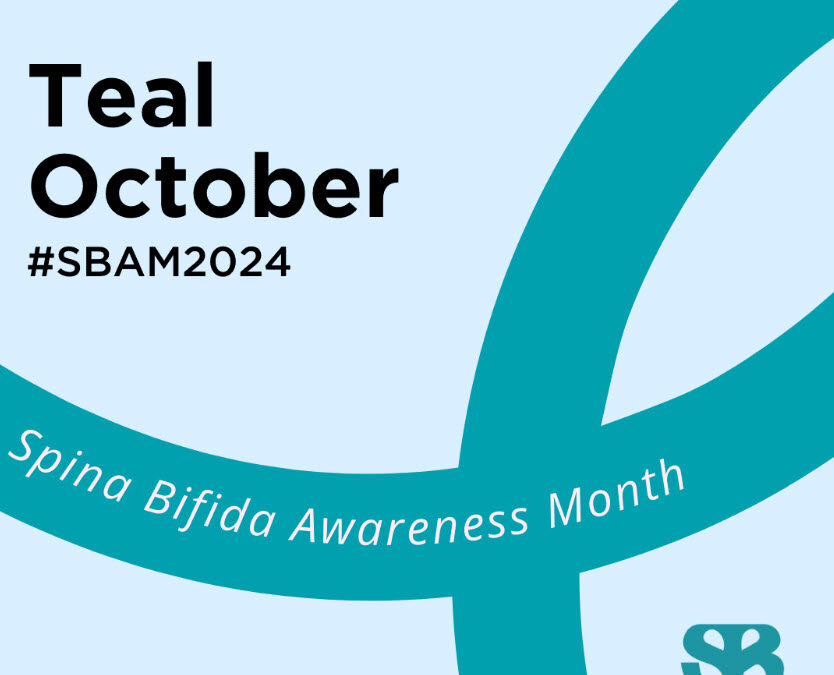October is Spina Bifida Awareness Month. At Children’s Hospital at Erlanger, we are dedicated to offering the best care for children with spina bifida. Our multidisciplinary team works together to address our patient’s needs and help every child live a healthy, happy life. Spina bifida occurs due to abnormal spinal cord formation during gestation and affects thousands of people globally. Despite ongoing research, the exact cause remains unknown, though genetic links and folate deficiency during pregnancy are associated factors.
Understanding Spina Bifida: The “Snowflake Condition”
Often referred to as the “snowflake condition” because no two cases are alike, spina bifida presents in various forms, ranging from mild to severe. Globally, the prevalence of spina bifida is approximately 33.8 – 48.4 cases per 100,000 births. It affects 3 – 6 individuals per 10,000 people in the United States. There is no cure for spina bifida, and those affected do not “outgrow” it. However, with appropriate care and support, most people living with spina bifida can lead long, healthy lives.
Types of Spina Bifida
Spina bifida manifests in three primary forms:
- Myelomeningocele: The most severe type, where a portion of the spinal cord and nerves protrude through an opening in the spine, causing significant neurological impairment.
- Meningocele: A rarer form where the protective membranes around the spinal cord push out through an opening in the spine, but the spinal cord remains in place.
- Spina Bifida Occulta: The mildest form, often unnoticed until later in life, with a small gap in the spine but no opening or sac on the back. Sometimes, a sign is visible, like a tuft of hair or a sacral dimple.
Potential Complications and Challenges
The severity and specific challenges faced by individuals with spina bifida depend on the level and type of spinal lesion. Some of the complications may include:
- Weakness or Paralysis: This can affect mobility and require assistive devices.
- Orthopedic Malformations include club feet requiring corrective surgery or braces.
- Hydrocephalus: Fluid accumulation in the brain that may necessitate a shunt to drain excess fluid.
- Neurogenic Bladder: Issues with bladder control due to nerve damage, requiring specialized urological care.
- Neurogenic Bowel: Similar nerve-related problems affecting bowel control, often requiring a structured bowel program.
- Sleep and Breathing Disorders: Including central and obstructive sleep apnea.
- Learning Difficulties: These include inattention and challenges in math and reading.
- Eye Problems: Visual impairments that require ongoing ophthalmological care.
Comprehensive Care at Children’s Hospital at Erlanger
At the Children’s Hospital at Erlanger, we are dedicated to providing comprehensive care for children with spina bifida and their families. Our multi-disciplinary approach ensures that all aspects of a child’s health are addressed with expert care.
Children’s Urology Team:
- Led by Dr. Israel Franco, who has over 30 years of experience managing spina bifida patients, our pediatric urology team is committed to proactive management. The team follows patients throughout their lifespan, from prenatal visits to young adulthood.
- We offer various services, including bladder management techniques, medications, lab tests to monitor kidney function, imaging, urodynamic studies, and surgery if necessary.
- Collaboration with GI specialists ensures each child has a tailored bowel program to achieve bowel continence.
- Multidisciplinary Approach: Our Colorectal and Bladder Clinic brings together urologists, gastrointestinal specialists, and surgeons to provide comprehensive care. Our team works closely with other specialists, including neurosurgery, orthopedics, and NICU, to address patient needs. We also have a pediatric psychologist to help with learning and emotional support.
A Message from Dr. Israel Franco, Director of Pediatric Urology at Erlanger
“Proactive management of children with neurologic problems leading to neurogenic bladder issues has been a lifelong passion of mine. My experience, from working with pioneers in urology and neurosurgery, has shown that early, aggressive treatment can prevent unnecessary major operations and protect children’s kidney health. At Erlanger, we are applying advanced techniques, including AI, to identify bladders at greatest risk for damage, ensuring early intervention. Our ultimate goal is to help every child with spina bifida achieve the highest quality of life, remaining dry, clean, and fully integrated into school and society.”
Our Commitment to Spina Bifida Care
Children’s Hospital at Erlanger is committed to providing top-tier care for children with spina bifida. While our pediatric urology team plays a critical role, we also collaborate closely with other specialties, including neurosurgery, orthopedics, GI, and NICU care, to address the full spectrum of needs. Our comprehensive, multidisciplinary approach aims to improve outcomes and enhance the quality of life for every child we serve.
Please visit our website for more information about our services or to schedule a consultation.







